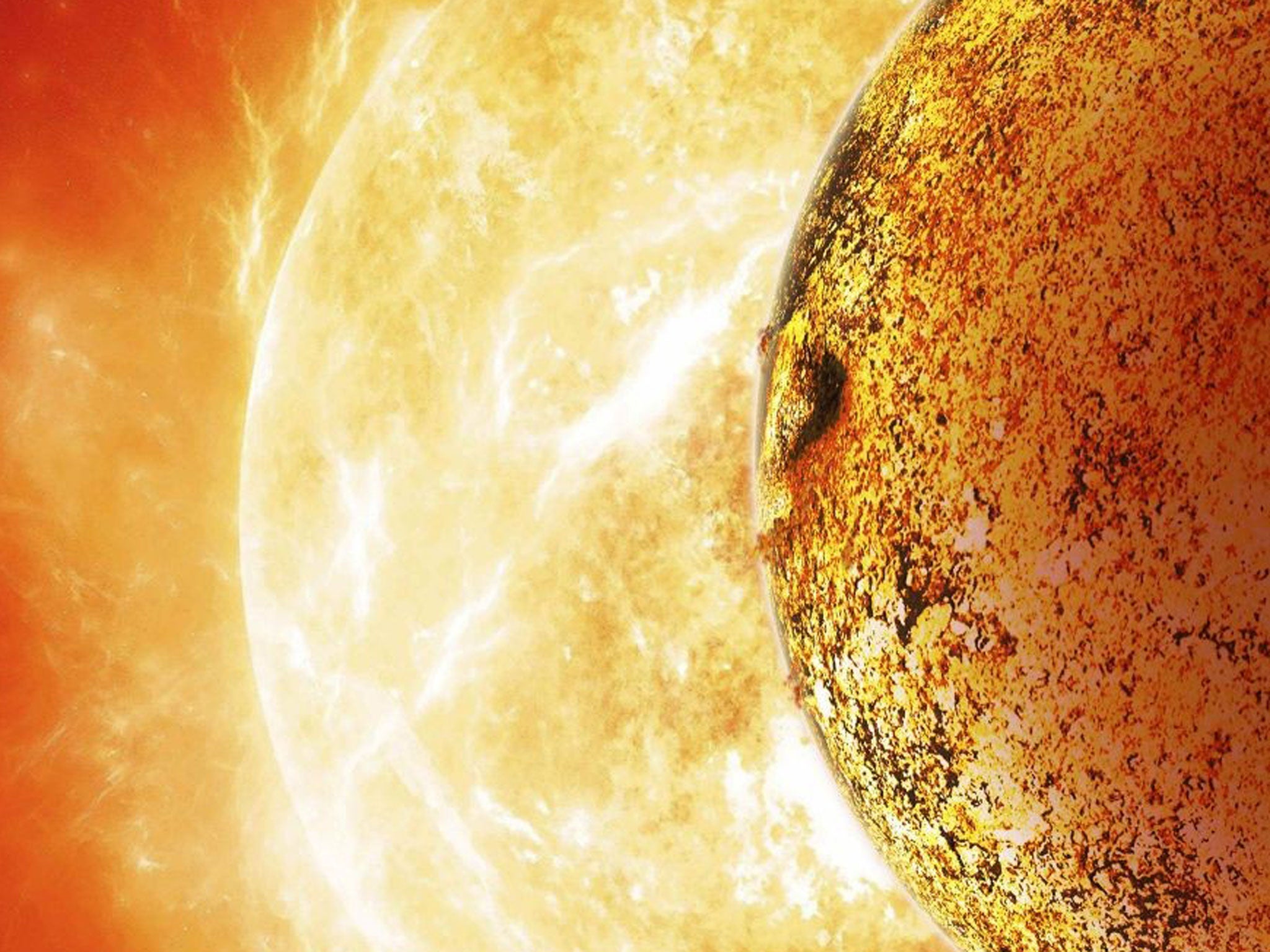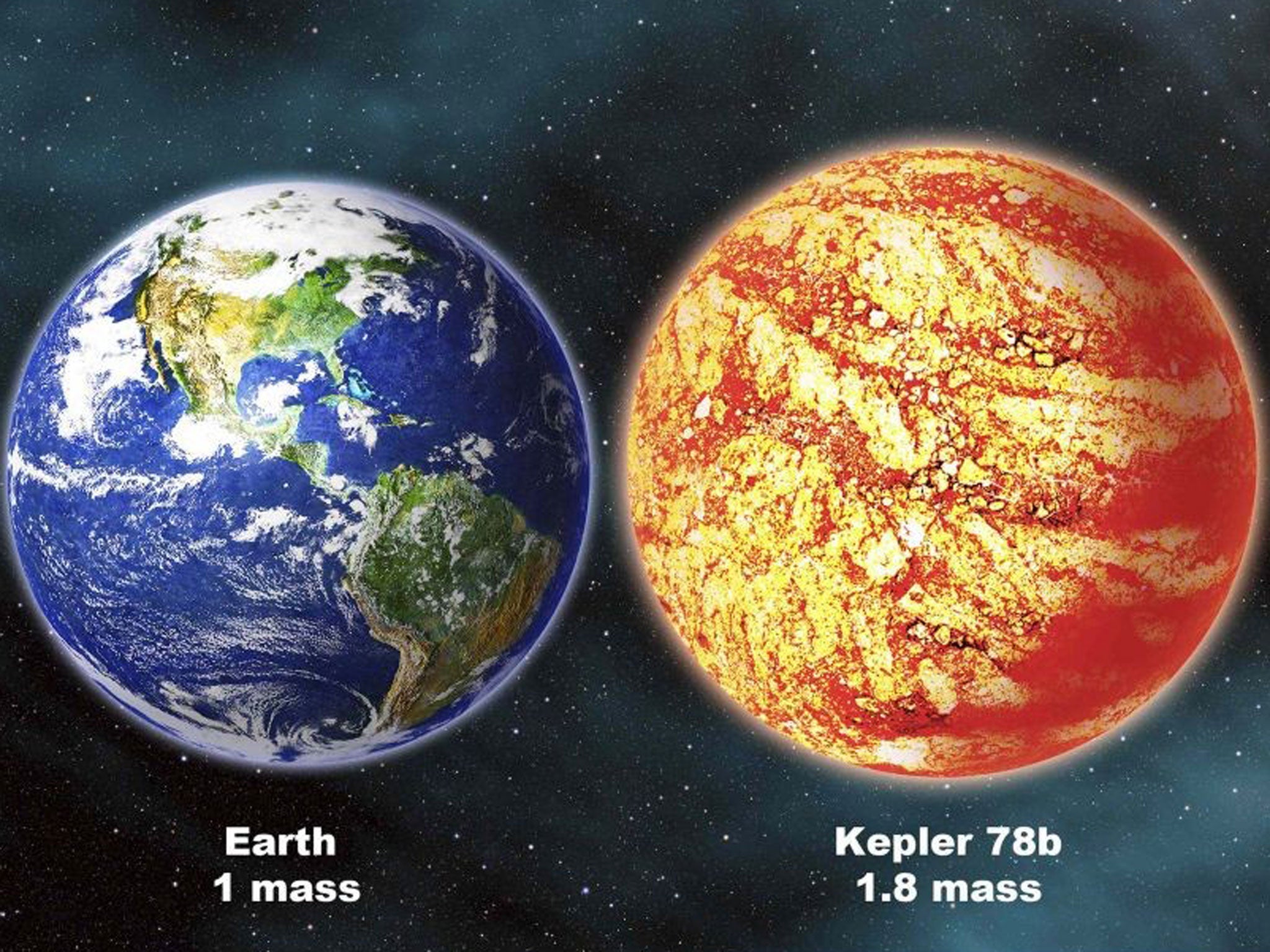'Earth-like' planet Kepler 78b discovered 400 light-years away
Scorching 'lava world' planet has a similar mass and density to Earth

Your support helps us to tell the story
From reproductive rights to climate change to Big Tech, The Independent is on the ground when the story is developing. Whether it's investigating the financials of Elon Musk's pro-Trump PAC or producing our latest documentary, 'The A Word', which shines a light on the American women fighting for reproductive rights, we know how important it is to parse out the facts from the messaging.
At such a critical moment in US history, we need reporters on the ground. Your donation allows us to keep sending journalists to speak to both sides of the story.
The Independent is trusted by Americans across the entire political spectrum. And unlike many other quality news outlets, we choose not to lock Americans out of our reporting and analysis with paywalls. We believe quality journalism should be available to everyone, paid for by those who can afford it.
Your support makes all the difference.A "lava-world" orbiting 400-light years away has been discovered by scientists, who say the planet they have named Kepler 78b has a similar mass and density to Earth.
Kepler 78b is the smallest exoplanet with a known mass and size. Its orbit and mass was determined by analysing the light emitted from its star that was then blocked by the planet as it passed in front.
Scientists measuring the planets mass say it is approximately 1.2 times bigger than Earth, 1.7 times more massive, and has an almost identical density.
Like the Earth, scientists believe Kepler 78b mostly consists of rock and iron. Unlike earth, the planet hugs its parent star so closely that temperatures can reach up to 2,800C, ensuring that nothing could live on the scorching surface.
Although the planet is an uninhabitable "hellish world", the authors of the study believe it "bodes well for the discovery and characterization of habitable planets."
“It's Earth-like in the sense that it's about the same size and mass, but of course it's extremely unlike the Earth in that it's at least 2,000 degrees hotter,” said Dr Josh Winn, from the Massachusetts Institute of Technology, US, who took part in the research published in the journal Nature.
“It's a step along the way of studying truly Earth-like planets.”
Dr Chris Watson from Queen's University in Belfast, whose team also studied the planet described conditions there as "a scorching lava world" of a planet he said should not exist. He added that its close proximity to its star, and how it arrived there, is a mystery. One thing the scientists do know, however, is that it won't last forever.

American and European teams of astronomers examined data from observatories in Hawaii and the Canary Islands to analyse the star's “wobble” caused by the gravitational tug of Kepler 78b.
“When you have both the size and the mass of an object, you can calculate its density, and thereby determine its composition,” said Dr Andrew Howard, from the University of Hawaii.
The planet was first identified by the American space agency Nasa's Kepler space telescope, which looked for planets crossing in front of 150,000 stars.
Join our commenting forum
Join thought-provoking conversations, follow other Independent readers and see their replies
Comments